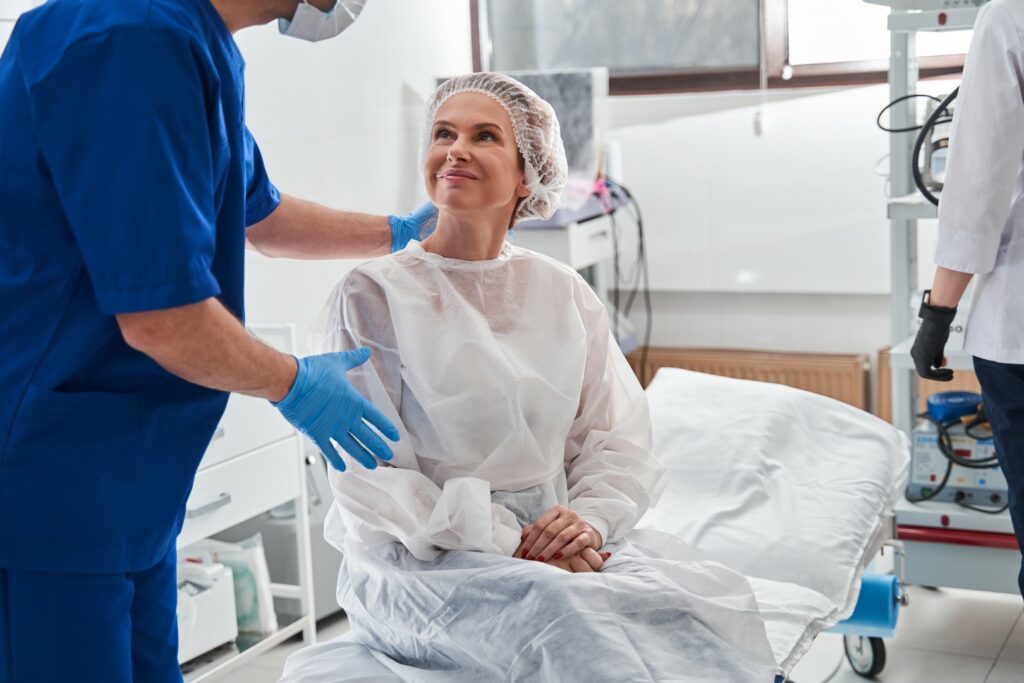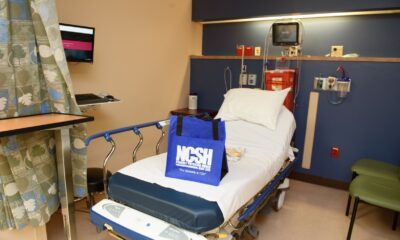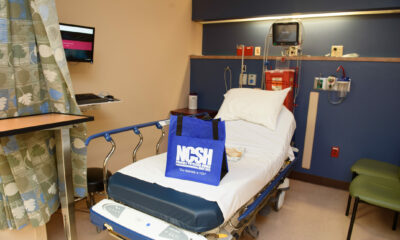Access your own patient portal, provided by NCSH.
General Surgery
Why Can’t You Eat Before Surgery? Find Out the 3 Important Reasons
Mon, Feb 26, 2024

When you’re preparing for surgery and going under general anesthesia, one instruction patients receive in the pre-op information from North Carolina Specialty Hospital is to refrain from eating or drinking for a certain period of time beforehand.
Why can’t you eat before surgery, you wonder? Read on to discover why refraining from sustenance is necessary to ensure your safe and successful surgical outcome.
3 Important Reasons Why You Can’t Eat or Drink Before Surgery
The instruction to not eat or drink before surgery is known as NPO. What does NPO mean? NPO stands for “nil per os”—meaning “nothing by mouth”—and it usually precedes a time frame in a doctor’s order, such as “NPO after midnight” (nothing by mouth after midnight).
Your doctor orders NPO before surgery to:
- Prevent aspiration during surgery. Aspiration occurs when stomach contents, such as food or liquids, enter the lungs instead of going down the digestive tract. This can lead to serious complications, such as pneumonia or respiratory distress syndrome.When a patient is under anesthesia during surgery, their ability to protect their airway and swallow effectively is compromised. If there is food or liquid in the stomach, it can regurgitate into the throat and be aspirated into the lungs. By ensuring that the stomach is empty before surgery, the risk of aspiration is greatly reduced.
- Prevent complications related to anesthesia. Anesthesia can cause a decrease in gastrointestinal motility, which can lead to nausea, vomiting, or even bowel obstruction. If there is food or liquid in the stomach during surgery, it can increase the risk of these complications occurring.
- Maintain a stable blood sugar level. Eating or drinking before surgery can cause fluctuations in blood sugar levels, which can be problematic during the procedure. High or low blood sugar levels can affect how the body responds to anesthesia and may increase the risk of complications during and after surgery.
Not following the NPO protocol can have serious consequences. If you eat or drink before surgery, there is a higher chance of one of these complications occurring.
Additional NPO Questions Answered
Is NPO for all surgeries?
NPO is instructed when the patient will be under general anesthesia for surgery. If localized anesthesia is used, no NPO is necessary.
Is NPO only for surgeries?
Actually, NPOs aren’t just for surgeries. They’re part of the instructions whenever a patient goes under general anesthesia for procedures such as colonoscopies, endoscopies, some dental procedures, and MRIs.
Can you drink water before surgery?
Depending on the operation, your surgeon may let you drink clear liquids before the surgery. Water or apple juice is recommended up to a few hours before surgery. (However, clear liquids don’t include drinking alcohol before surgery.)
What if you need to take medication?
In general, you may be allowed to take your medication with a sip of water prior to surgery, but you should discuss this with your doctor.
Is NPO the same as preoperative fasting?
Yes. Also referred to as preoperative fasting, the NPO’s fasting time frame allows for the stomach to empty its contents to lessen aspiration risk.
How long do you have to go without food?
It generally takes the stomach six to eight hours to empty, which is why most fasting periods are eight to 12 hours prior to the surgery.
What happens if you’ve had something before your surgery?
Depending on what you’ve had to eat and when you ate it, your doctor may delay your surgery to give your stomach time to empty. Or, they may reschedule your surgery to another day. If it’s a clear liquid, they may be more flexible.
North Carolina Specialty Hospital Receives High Rankings for Patient Care
 If you’re scheduled for surgery with us, following your surgeon’s NPO instructions is crucial for a successful outcome. Our guidelines are put in place to ensure your safety and minimize any potential complications. By refraining from eating or drinking before surgery, you are actively participating in your own well-being and contributing to a positive surgical outcome.
If you’re scheduled for surgery with us, following your surgeon’s NPO instructions is crucial for a successful outcome. Our guidelines are put in place to ensure your safety and minimize any potential complications. By refraining from eating or drinking before surgery, you are actively participating in your own well-being and contributing to a positive surgical outcome.
Our long-standing tradition of providing quality care for our patients started in 1926. Today, our state-of-the-art medical facility located in the Raleigh-Durham area specializes in orthopedics; ophthalmology; and ear, nose, and throat, as well as sports medicine, oral, plastic, podiatry, general surgery, interventional radiology, pain management, reconstructive surgery, and more.
Learn more about what you can expect from our General Surgery department or any of our specialty areas. We think you’ll find that instead of asking why can’t you eat before surgery, you’ll be saying you can’t wait to get better!
RELATED NEWS

What Is a Muscle Biopsy? 8 Things to Know
If you have unusual muscle symptoms that cannot be easily explained, you could benefit from a muscle biopsy. This relatively simple procedure helps specialists determine the underlying cause of muscle pain and weakness, rule out…
Continue Reading

Frequently Asked Questions About General Surgery
The Top 7 Frequently Asked Questions About General Surgery
Continue Reading

Skin Graft Healing Stages—What You Need to Know
Skin grafting for burns and other challenging wounds is a procedure that uses donor tissue, often from the patient’s own body. If you need a skin graft, your surgeon will explain the surgery, how the…
Continue Reading
Stay Current
Educational Articles & More
View News & Press